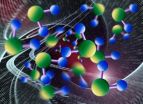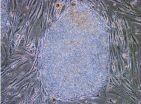(Press-News.org) A BYU biologist is part of a team of researchers that has unlocked the "black box" to the underground world home to billions of microscopic creatures.
That first peek inside, recently published in the Proceedings of the National Academy of Sciences – one of the top three scientific journals in the world – may well explain how the number of species in an ecosystem changes the way it functions.
"The organisms that live in soil do all kinds of important things for us – they decompose and decontaminate our waste and toxic chemicals, purify our water, prevent erosion, renew fertility," said BYU biology professor Byron Adams, a study coauthor. "But we know very little about how they do this. What species need to be present? What are the different jobs that we need them to do?"
For their analysis, Adams and his colleagues took 16 soil samples from all reaches of the globe, from Antarctica to tropical forest locations, extracted the DNA out of all the organisms in each sample, and sequenced it.
With information about the genome (the complete set of its DNA and all of its genes) of each microbe in the soil, the researchers were able to see which organisms do what, and whether or not their functional roles are redundant or unique.
"People think you're going to pick up a handful of dirt anywhere in the world and you'll pretty much have the same bunch of microbes doing pretty much the same things," Adams said. "That's simply not true. They function very differently based on their environment. And when you have more species, you get more, and different functions."
Having several different species that do the same job might mean that if one species goes extinct then the others can pick up the slack. On the other hand, in ecosystems like deserts, where there are few species and even fewer jobs, removing some species could result in collapse, or failure of the ecosystem to provide the services we need.
Understanding the relationship between biodiversity and the different jobs that soil microbes do is a first step towards understanding how to better harness these organisms in order to prevent the collapse of the very systems that provide critical ecosystem services, such as fertile soil and clean water.
"The most obvious applications of this understanding will probably be in agricultural ecosystems," Adams said.
A better understanding of below-ground ecosystems can help humans predict how those systems will respond to things such as climate change or perturbations to the soil from mining, drilling or waste. And, hopefully, that understanding can help prevent agricultural or environmental catastrophes.
"We've been walking around on soil since the beginning of time and never really knew what was going on underneath us," Adams said. "Now we will be able to make predictions of how ecosystems function, what causes them to collapse, and perhaps even predict, where collapses will take place and how we can prevent them."
The lead author on the study was Noah Fierer, an associate professor of Ecology and Evolutionary Biology at the University of Colorado, Boulder.
The researchers' data also may have something to say about how new species form. For centuries it was thought that geographic barriers (like mountains, peninsulas, rivers and deserts) were the primary engines of speciation. However, it could be that interactions with other species are just as important.
The authors believe this study will open up significant additional research addressing speciation and the evolution of microbial communities.
INFORMATION:
Biologists unlock 'black box' to underground world
Research shows how tiny microbes make life easier for humans
2013-01-03
ELSE PRESS RELEASES FROM THIS DATE:
How computers push on the molecules they simulate
2013-01-03
Because modern computers have to depict the real world with digital representations of numbers instead of physical analogues, to simulate the continuous passage of time they have to digitize time into small slices. This kind of simulation is essential in disciplines from medical and biological research, to new materials, to fundamental considerations of quantum mechanics, and the fact that it inevitably introduces errors is an ongoing problem for scientists.
Scientists at the U.S. Department of Energy's Lawrence Berkeley National Laboratory (Berkeley Lab) have now identified ...
Big brains are pricey, guppy study shows
2013-01-03
Bigger brains can make animals, well, brainier, but that boost in brain size and ability comes at a price. That's according to new evidence reported on January 3rd in Current Biology, a Cell Press publication, in which researchers artificially selected guppies for large and small brain sizes.
The findings lend support to the notion that bigger brains and increased cognitive ability do go together, a topic that has been a matter of considerable debate in recent years, said Niclas Kolm of Uppsala University in Sweden. They also represent some of the first convincing evidence ...
Japanese team creates cancer-specific killer T cells from induced pluripotent stem cells
2013-01-03
Researchers from the RIKEN Research Centre for Allergy and Immunology in Japan report today that they have succeeded for the first time in creating cancer-specific, immune system cells called killer T lymphocytes, from induced pluripotent stem cells (iPS cells). To create these killer cells, the team first had to reprogram T lymphocytes specialized in killing a certain type of cancer, into iPS cells. The iPS cells then generated fully active, cancer-specific T lymphocytes. These lymphocytes regenerated from iPS cells could potentially serve as cancer therapy in the future. ...
Revolutionary techniques could help harness patients' own immune cells to fight disease
2013-01-03
The human body contains immune cells programmed to fight cancer and viral infections, but they often have short lifespans and are not numerous enough to overcome attacks by particularly aggressive malignancies or invasions. Now researchers reporting in two separate papers in the January 4th issue of the Cell Press journal Cell Stem Cell used stem cell technology to successfully regenerate patients' immune cells, creating large numbers that were long-lived and could recognize their specified targets: HIV-infected cells in one case and cancer cells in the other. The findings ...
Stanford researchers use stem cells to pinpoint cause of common type of sudden cardiac death
2013-01-03
STANFORD, Calif. — When a young athlete dies unexpectedly on the basketball court or the football field, it's both shocking and tragic. Now Stanford University School of Medicine researchers have, for the first time, identified the molecular basis for a condition called hypertrophic cardiomyopathy that is the most common cause for this type of sudden cardiac death.
To do so, the Stanford scientists created induced pluripotent stem cells, or iPS cells, from the skin cells of 10 members of a family with a genetic mutation that causes the condition. The researchers then ...
In epigenomics, location is everything
2013-01-03
In a novel use of gene knockout technology, researchers at the University of California, San Diego School of Medicine tested the same gene inserted into 90 different locations in a yeast chromosome – and discovered that while the inserted gene never altered its surrounding chromatin landscape, differences in that immediate landscape measurably affected gene activity.
The findings, published online in the Jan. 3 issue of Cell Reports, demonstrate that regulation of chromatin – the combination of DNA and proteins that comprise a cell's nucleus – is not governed by a uniform ...
Researchers zero in on cognitive difficulties associated with menopause
2013-01-03
The memory problems that many women experience in their 40s and 50s as they approach and go through menopause are both real and appear to be most acute during the early period of post menopause. That is the conclusion of a study which appears today in the journal Menopause.
"Women going through menopausal transition have long complained of cognitive difficulties such as keeping track of information and struggling with mental tasks that would have otherwise been routine," said Miriam Weber, Ph.D. a neuropsychologist at the University of Rochester Medical Center (URMC) ...
New strategies needed to encourage male cancer survivors to consider future fertility
2013-01-03
Pioneering research presented at the Fertility 2013 conference today (Thursday 3 January 2013) shows that a large proportion of male cancer patients are missing out on appropriate fertility advice.
Sperm banking is routinely recommended for all men diagnosed with cancer who are at risk of long-term infertility, caused by treatment such as chemotherapy and radiotherapy.
Infertility can be permanent or temporary depending on the individual's circumstances and men may need to attend follow-up appointments to assess their fertility in the years after they have been discharged ...
Cup color influences the taste of hot chocolate
2013-01-03
Two researchers from the Polytechnic University of Valencia and the University of Oxford have proven that hot chocolate tastes better in an orange or cream coloured cup than in a white or red one. The study adds to recent research demonstrating how our senses perceive food in a different way depending on the characteristics of the container from which we eat and drink.
"The colour of the container where food and drink are served can enhance some attributes like taste and aroma," as explained to SINC by Betina Piqueras-Fiszman, researcher at the Polytechnic University ...
Scientists pinpoint molecular signals that make some women prone to miscarriage
2013-01-03
The research, carried out at Imperial College London and the University of Warwick, suggests these signals could be targets for drugs that would help prevent miscarriage in women who are particularly vulnerable.
At the start of pregnancy, the fertilised embryo must embed itself in the lining of the uterus. The uterus is only receptive to embryos for a few days in each menstrual cycle, ensuring that embryos can only implant at the right stage of development. Currently scientists know only a few details about the biological processes that control when an embryo can be implanted.
In ...
LAST 30 PRESS RELEASES:
Late-breaking study finds comparable long-term survival between two leading multi-arterial CABG strategies
Lymph node examination should be expanded to accurately assess cancer spread in patients with lung cancer
Study examines prediction of surgical risk in growing population of adults with congenital heart disease
Novel radiation therapy QA method: Monte Carlo simulation meets deep learning for fast, accurate epid transmission dose generation
A 100-fold leap into the unknown: a new search for muonium conversion into antimuonium
A new approach to chiral α-amino acid synthesis - photo-driven nitrogen heterocyclic carbene catalyzed highly enantioselective radical α-amino esterification
Physics-defying discovery sheds new light on how cells move
Institute for Data Science in Oncology announces new focus-area lead for advancing data science to reduce public cancer burden
Mapping the urban breath
Waste neem seeds become high-performance heat batteries for clean energy storage
Scientists map the “physical genome” of biochar to guide next generation carbon materials
Mobile ‘endoscopy on wheels’ brings lifesaving GI care to rural South Africa
Taming tumor chaos: Brown University Health researchers uncover key to improving glioblastoma treatment
Researchers enable microorganisms to build molecules with light
Laws to keep guns away from distressed individuals reduce suicides
Study shows how local business benefits from city services
RNA therapy may be a solution for infant hydrocephalus
Global Virus Network statement on Nipah virus outbreak
A new molecular atlas of tau enables precision diagnostics and drug targeting across neurodegenerative diseases
Trends in US live births by race and ethnicity, 2016-2024
Sex and all-cause mortality in the US, 1999 to 2019
Nasal vaccine combats bird flu infection in rodents
Sepsis study IDs simple ways to save lives in Africa
“Go Red. Shop with Heart.” to save women’s lives and support heart health this February
Korea University College of Medicine successfully concludes the 2025 Lee Jong-Wook Fellowship on Infectious Disease Specialists Program
Girls are happiest at school – for good reasons
Researchers from the University of Maryland School of Medicine discover genetic ancestry is a critical component of assessing head and neck cancerous tumors
Can desert sand be used to build houses and roads?
New species of ladybird beetle discovered on Kyushu University campus
Study identifies alternate path for inflammation that could improve RA treatment
[Press-News.org] Biologists unlock 'black box' to underground worldResearch shows how tiny microbes make life easier for humans




